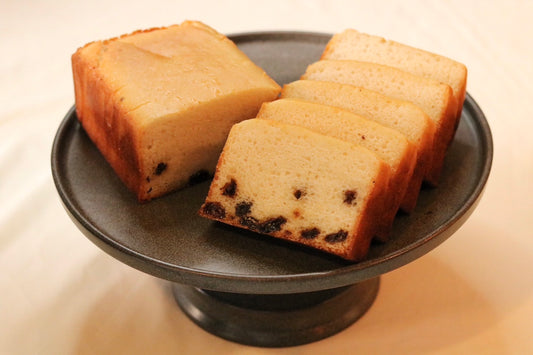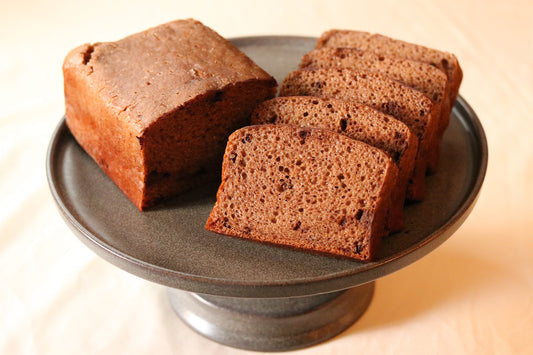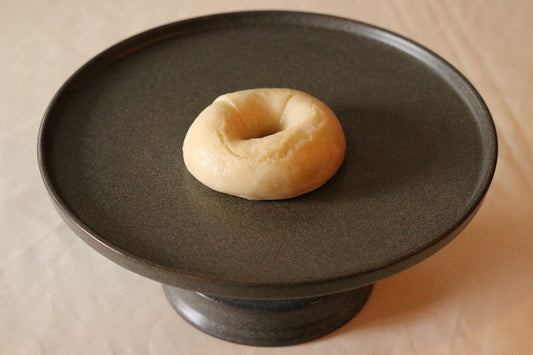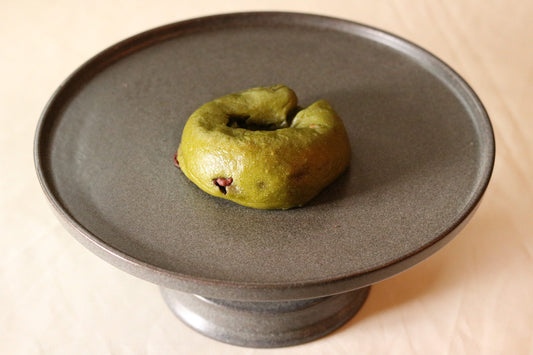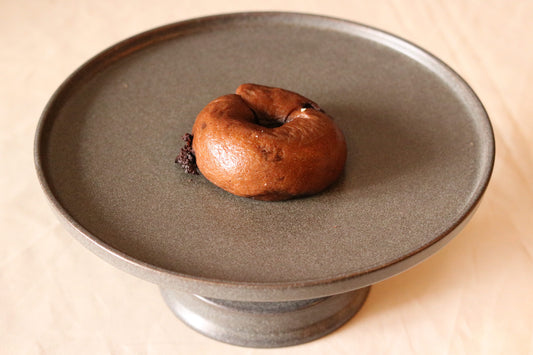Gluten-free diet to prevent aging | Diet to stay youthful

The mechanism by which gluten promotes aging

The relationship between gluten and the intestinal environment
Gluten disrupts the intestinal flora
Gluten is a type of protein found in grains such as wheat, barley, and rye. Ingesting gluten can disrupt the balance of the intestinal flora, potentially increasing the number of harmful bacteria. When harmful bacteria become dominant, the intestinal environment becomes disrupted, causing inflammation. Chronic inflammation increases reactive oxygen species, which promote aging and have adverse effects on various parts of the body.
Increased intestinal permeability (leaky gut)
Gluten can irritate the intestinal mucosa and increase intestinal permeability. This condition, known as "leaky gut," weakens the intestinal mucosa's barrier function, making it easier for unwanted substances to enter the body. When leaky gut occurs, the immune response to foreign substances becomes overly activated, causing inflammation throughout the body. Chronic inflammation can accelerate the rate of aging.
Triggers chronic inflammation
Gluten-induced intestinal disturbances and leaky gut can cause chronic inflammation in the body , which can affect various parts of the body and cause the following problems:
- Joint pain and inflammation
- Skin problems (acne, eczema, etc.)
- Headaches and dizziness
- Fatigue and fatigue
- Weakened immune system
These problems are factors that accelerate aging. When inflammation becomes chronic, the body's antioxidant system stops functioning properly and reactive oxygen species increase. Reactive oxygen species damage cells and DNA, accelerating aging. Therefore, chronic inflammation caused by gluten can be said to be one of the major factors that accelerate the aging process.
Increased inflammatory cytokines
Chronic inflammation caused by gluten leads to an increase in inflammatory cytokines in the body. Cytokines are proteins secreted by immune cells and play a role in regulating inflammatory responses. Excessive secretion of inflammatory cytokines leads to chronic inflammation throughout the body, accelerating the rate of aging. Representative inflammatory cytokines, IL-6 and TNF-α, have the following effects:
- Promotes cell aging
- Decreases the body's antioxidant system
- Causes insulin resistance and increases the risk of diabetes
- Causes brain inflammation and leads to cognitive decline
Gluten intake increases the secretion of these inflammatory cytokines, which contributes to accelerated aging.
Accumulation of oxidative stress
Chronic inflammation caused by gluten increases oxidative stress in the body. Oxidative stress refers to a state in which excessive amounts of reactive oxygen species are produced and cannot be processed by the body's antioxidant system. When oxidative stress accumulates, it damages cells and DNA, accelerating aging. Gluten is thought to increase oxidative stress through the following mechanisms:
- Increased levels of inflammatory cytokines increase the production of reactive oxygen species
- Disturbances in the intestinal flora increase oxidative stress in the intestines
- Leaky gut increases the penetration of foreign substances and overactivates the immune response
The combined effects of these factors lead to the accumulation of oxidative stress in the body, which is known to increase the risk of not only aging but also various diseases such as cancer and neurodegenerative disorders.
The relationship between aging-related diseases and gluten

Chronic inflammation and oxidative stress caused by gluten have been linked to various aging-related diseases. Below, we will explain some of the most common diseases.
Alzheimer's disease, Parkinson's disease, etc.
Gluten may cause inflammation in the brain and increase the risk of neurodegenerative diseases. Alzheimer's disease and Parkinson's disease are thought to be related to inflammation and oxidative stress in the brain. Chronic inflammation caused by gluten may be a factor that promotes the onset and progression of these diseases. In fact, increased levels of inflammatory cytokines and elevated markers of oxidative stress have been confirmed in the brains of patients with Alzheimer's disease. A gluten-free diet may be useful in preventing or slowing the progression of these diseases.
Cardiovascular disease, diabetes, etc.
Chronic inflammation caused by gluten may increase the risk of cardiovascular disease and diabetes. Increased levels of inflammatory cytokines promote arteriosclerosis and thrombosis, increasing the risk of myocardial infarction and stroke. Inflammation also causes insulin resistance and contributes to the development of diabetes. A gluten-free diet may be useful in preventing and managing these diseases. In fact, a gluten-free diet has been reported to lower inflammatory markers and improve blood sugar control. However, caution is required as some gluten-free foods are high in calories and fat. It is important to maintain a balanced diet and engage in moderate exercise.
Anti-aging effects of gluten-free diet

A gluten-free diet is effective in preventing aging and maintaining youthfulness. Avoiding gluten intake is expected to improve the intestinal environment and calm chronic inflammation. Here, we will explain in detail the anti-aging effects of a gluten-free diet.
Improved intestinal environment and youthfulness

A gluten-free diet is important for improving your gut health and maintaining a youthful appearance. Avoiding gluten helps balance your gut flora and increase the number of good bacteria, which promotes gut health and slows the aging process.
Increase in good bacteria and balance of intestinal flora
A gluten-free diet helps increase the number of good bacteria in the intestines. Good bacteria help to improve the intestinal environment and boost immune function. By not consuming gluten, good bacteria become dominant, improving the balance of the intestinal flora. A balanced intestinal flora has the following effects:
- Reduces intestinal inflammation
- Promotes the release of harmful substances
- Enhances nutrient absorption
- Strengthen immune function
These effects promote gut health and slow down the aging process.
Restoring intestinal barrier function
A gluten-free diet helps restore intestinal barrier function. By not consuming gluten, the intestinal mucosa is repaired and the leaky gut condition is improved. When intestinal barrier function is restored, the following effects can be expected:
- Prevents the intrusion of harmful substances and foreign objects
- Inhibits the absorption of inflammatory substances
- Prevents excessive activation of the immune response
- Reduces inflammation throughout the body
Restoring intestinal barrier function is important for preventing chronic inflammation, which contributes to aging. A gluten-free diet is effective in promoting gut health and maintaining a youthful appearance.
Calming inflammation and anti-aging

A gluten-free diet reduces inflammation in the body and has anti-aging effects. Avoiding gluten intake suppresses the secretion of inflammatory cytokines and improves chronic inflammation. Reducing inflammation has the following effects:
- Suppresses cell aging
- Reduces oxidative stress
- Prevents cell and DNA damage
- Reduce the risk of age-related diseases
A gluten-free diet can slow down the aging process by suppressing inflammation. Furthermore, gluten-free foods are rich in nutrients with antioxidant properties. For example, gluten-free grains such as quinoa and amaranth are rich in antioxidants such as polyphenols and vitamin E. These nutrients reduce oxidative stress in the body and help prevent aging.
A gluten-free diet has anti-aging effects by reducing inflammation and increasing antioxidant power. We recommend adopting a gluten-free diet to maintain youthfulness and live a healthy life.
Reduction of inflammatory cytokines
A gluten-free diet has the effect of reducing inflammatory cytokines in the body. By not consuming gluten, the secretion of inflammatory cytokines such as IL-6 and TNF-α is suppressed. A reduction in inflammatory cytokines has the following effects: [Bullets] - Suppresses inflammatory responses throughout the body - Prevents cellular aging - Normalizes immune function - Promotes tissue repair A reduction in inflammatory cytokines calms inflammation in the body and slows the rate of aging. A gluten-free diet exerts anti-aging effects by reducing inflammatory cytokines.
Reduces oxidative stress
A gluten-free diet has the effect of reducing oxidative stress in the body. By not consuming gluten, the production of free radicals is suppressed and the antioxidant system is strengthened. Reducing oxidative stress has the following effects:
- Prevents cell and DNA damage
- Slows down the aging process
- Reduce the risk of chronic diseases
- Promotes healthy skin
Gluten-free foods are rich in antioxidants such as vitamin C, vitamin E, and polyphenols. These nutrients neutralize oxidative stress in the body and prevent aging. A gluten-free diet is effective in maintaining youthfulness by reducing oxidative stress.
Reduced risk of age-related diseases

A gluten-free diet can reduce the risk of various age-related diseases. Avoiding gluten intake can improve chronic inflammation and oxidative stress, preventing the onset and progression of diseases. Here, we will explain some of the most common age-related diseases.
Maintaining cognitive function
A gluten-free diet helps maintain cognitive function. Avoiding gluten reduces inflammation in the brain and prevents damage to nerve cells, which reduces the risk of neurodegenerative diseases such as Alzheimer's and Parkinson's.
A gluten-free diet also improves blood flow to the brain and enhances cognitive function. Gluten-free foods, rich in nutrients such as omega-3 fatty acids and B vitamins, promote brain health. A gluten-free diet is effective in maintaining cognitive function and preventing brain decline associated with aging.
Prevention of lifestyle-related diseases
A gluten-free diet helps prevent lifestyle-related diseases. Avoiding gluten intake improves chronic inflammation and reduces the risk of cardiovascular disease and diabetes. Gluten-free foods are rich in dietary fiber and healthy fatty acids. These nutrients help maintain healthy blood sugar and blood cholesterol levels and prevent lifestyle-related diseases.
A gluten-free diet is also effective for weight management. Since many foods containing gluten are high in calories, avoiding gluten naturally reduces calorie intake. Maintaining a healthy weight is important for preventing lifestyle-related diseases. A gluten-free diet reduces inflammation and maintains a healthy body composition, thereby reducing the risk of lifestyle-related diseases. We recommend adopting a gluten-free diet to prevent aging-related diseases and extend your healthy lifespan.
Tips for a gluten-free diet

When starting a gluten-free diet, it is important to keep a few tips in mind. It is important not only to avoid gluten, but also to eat a balanced diet and ensure you get the nutrients you need. Here we will explain the key points to successfully follow a gluten-free diet.
The importance of a balanced diet
When starting a gluten-free diet, it is important to eat a balanced diet. Simply eliminating foods containing gluten can lead to nutritional imbalances. It is important to include a variety of food groups to ensure you get the nutrients you need.
Eat a variety of foods
When following a gluten-free diet, it's important to eat a variety of food groups, including:
- Vegetables and fruits: rich in vitamins, minerals and dietary fiber
- Meat, fish, eggs, soy products: rich in quality protein
- Nuts and seeds: rich in healthy fatty acids and dietary fiber
- Quinoa and other grains: gluten-free grains with high nutritional value
By consuming a balanced diet of these food groups, you can avoid gluten while still getting the nutrients you need. It's also important to be conscious of the color of your meals. By incorporating colorful foods, you can naturally consume a variety of nutrients.
Ensuring necessary nutrients
When following a gluten-free diet, it is important to pay particular attention to the following nutrients:
- Dietary fiber: important for preventing constipation and improving intestinal environment
- Iron: important for preventing anemia
- Calcium: important for maintaining healthy bones
- B vitamins: important for energy metabolism and nerve function
It is important to consciously consume these nutrients to avoid deficiencies. Choosing nutritious gluten-free foods and using supplements are also effective. Gluten-free foods also tend to have fewer vitamins and minerals than regular foods. For this reason, it is important not to rely too much on gluten-free foods, but to obtain nutrients from natural ingredients.
How to Choose Gluten-Free Foods

When following a gluten-free diet, it is important to choose foods that do not contain gluten. However, some gluten-free foods cannot be considered healthy. It is important to pay attention to the following points when choosing gluten-free foods.
- Check the ingredients label to make sure it's gluten-free
- Choose foods with fewer additives and preservatives
- Limit refined carbohydrates and sugary foods
- Choose foods that contain healthy fatty acids
- Choose foods that are high in fiber
Gluten-free foods tend to be more expensive than regular foods. For this reason, it is important not to rely too much on gluten-free foods and to utilize natural ingredients. It is also important to consider nutritional balance when choosing gluten-free foods. The key to a gluten-free diet is not just to avoid gluten, but to make healthy food choices. A balanced diet and smart food choices are essential to a successful gluten-free diet. Keep these tips in mind and enjoy a gluten-free diet.
Checking ingredient labels
When choosing gluten-free foods, it is important to check the ingredient label. Ingredients that contain gluten include wheat, barley, and rye. Make sure to check carefully to make sure these ingredients are not used. Ingredients that may contain gluten include the following:
- malt
- Malt extract
- soy sauce
- Sauces
- Breadcrumbs
- Fu (wheat gluten)
If any of these ingredients are present, there is a high possibility that it contains gluten, so caution is advised. Ingredient labels are relatively easy to understand, as there is a requirement to display allergens. However, there are also ingredients that are not required to be displayed, so it is important to check carefully.
Be careful about cross-contamination
When choosing gluten-free foods, it is important to be aware of cross-contamination. Cross-contamination refers to the unintentional introduction of gluten into a product through contact with other gluten-containing foods during the manufacturing process. Examples of cross-contamination include the following:
- Produced on the same production line as gluten-containing foods
- Produced in the same factory as gluten-containing foods
- Stored in the same storage area as gluten-containing ingredients
If cross-contamination occurs, even if the label says that the product does not contain gluten, it may actually contain gluten. Therefore, when choosing gluten-free foods, it is important to pay attention not only to the "gluten-free" label, but also to labels such as "manufactured in a dedicated factory" or "manufactured on a dedicated line." Also, when eating at restaurants, you need to be careful about cross-contamination of cooking utensils and cooking areas. When ordering gluten-free food, it is important to ask the staff to be considerate of cross-contamination.
Utilizing gluten-free ingredients

When following a gluten-free diet, it is important to make good use of gluten-free ingredients. Creating balanced meals using natural ingredients is the basis of a gluten-free diet. Here are some examples of gluten-free ingredients.
Grains, beans, vegetables, etc.
Grains and beans are recommended as gluten-free staple foods.
- Brown rice, red rice, black rice, and other grains
- Pseudograins such as quinoa and amaranth
- Legumes such as soybeans, chickpeas, and lentils
These ingredients do not contain gluten and are highly nutritious, making them suitable for a gluten-free diet. Vegetables can also be used as gluten-free ingredients.
- Leafy vegetables: spinach, komatsuna, cabbage, etc.
- Root vegetables: carrots, radishes, burdock, etc.
- Fruit vegetables: tomatoes, eggplants, peppers, etc.
Vegetables are rich in vitamins, minerals, and dietary fiber, making them an essential ingredient in a gluten-free diet. A vegetable-based diet is important for maintaining good health and leading a healthy lifestyle.
Nuts, seeds, etc.
Nuts and seeds are also gluten-free options.
- Nuts such as almonds, walnuts, and hazelnuts
- Seeds such as chia seeds, hemp seeds, and flax seeds
Nuts and seeds are rich in healthy fatty acids, dietary fiber, vitamins, and minerals. Nuts also help you feel full, making them suitable for snacking. Seeds can be used in a variety of ways, such as adding them to yogurt or smoothies, or using them as a finishing touch to dishes. By incorporating nuts and seeds wisely, you can enrich your gluten-free diet.
The key to a successful gluten-free diet is to use gluten-free ingredients and eat a balanced diet. Enjoy the deliciousness of natural ingredients while living a healthy gluten-free life.
Anti-aging strategies other than gluten-free

A gluten-free diet is effective in preventing aging, but there are many other ways to prevent aging as well. Habits that can be incorporated into daily life, such as taking antioxidants, moderate exercise, quality sleep, and stress management, can help prevent aging. This article explains other ways to prevent aging besides going gluten-free.
Antioxidant intake
Antioxidants neutralize active oxygen in the body and prevent aging. Actively consuming antioxidants such as vitamin C, vitamin E, and polyphenols is effective in preventing aging. Antioxidants are found in a variety of foods.
Vitamin C, Vitamin E
Vitamin C and Vitamin E are the major antioxidant vitamins.
[Foods rich in vitamin C]
- green pepper
- broccoli
- Kiwi fruit
- Paprika
- lemon
[Foods rich in vitamin E]
- Almonds
- Sunflower seeds
- avocado
- soybean
- spinach
By actively consuming these foods, you can increase the body's antioxidant capacity and prevent aging. Also, since vitamin C and vitamin E have a synergistic effect, it is recommended to take them together.
Phytonutrients such as polyphenols
Polyphenols are antioxidants found in plants.
[Foods rich in polyphenols]
- Green Tea
- Cocoa
- Berries (blueberries, raspberries, etc.)
- red wine
- Olive oil
In addition to their antioxidant properties, polyphenols have various health benefits, including anti-inflammatory and antibacterial properties. Other phytonutrients, such as quercetin and lycopene, also have antioxidant properties. By actively consuming plant-based foods such as vegetables, fruits, and herbs, you can increase your body's antioxidant capacity and prevent aging.
Regular exercise and quality sleep

Moderate exercise and quality sleep are essential for preventing aging. Exercise has the following effects:
- Improves blood flow and promotes the transport of oxygen and nutrients
- Maintain muscle mass and increase metabolism
- Stress relief and relaxation
- Improves brain function and prevents cognitive decline
Getting into the habit of moderate exercise for about 30 minutes a day is effective in preventing aging. Find an exercise that suits you, such as walking, jogging, swimming, or yoga. Quality sleep has the following effects:
- Promotes repair and regeneration of the body
- Boosts immune function
- Reduces the secretion of stress hormones
- Eliminates brain waste and maintains cognitive function
Getting 7 to 8 hours of quality sleep a day is important for preventing aging. It is important to maintain a regular lifestyle and to prepare your bedding and bedroom environment.
Stress management and positive thinking

Stress is one of the major factors that accelerate aging. Managing stress effectively and keeping a positive mindset can help prevent aging. Here are some ways to manage stress:
- Relaxation techniques such as deep breathing and mindfulness
- Engage in hobbies and activities that interest you
- Build good relationships with family and friends
- Spend time in nature
Positive thinking also has the following benefits:
- Boosts immune function
- Strengthen your resistance to stress
- Improves brain function and prevents cognitive decline
- Increase your will to live and your sense of purpose
Being grateful and engaging in positive self-talk are important for cultivating a positive mindset. It is also recommended to incorporate mindfulness practices, such as mindfulness and meditation, to help you calm your mind. By incorporating these anti-aging measures in addition to a gluten-free diet, you can more effectively prevent aging and live a healthier life. The important thing is to find a method that works for you in your daily life and continue it.
Aging is an inevitable process, but it can be slowed down by taking the right measures. Along with a gluten-free diet, there are various ways to prevent aging, such as taking antioxidants, exercising, getting enough sleep, and managing stress.
Introducing Komeko's Palette's gluten-free menu
Gluten-free rice flour bread

Komeko's Palette offers bread made with 100% rice flour, which does not contain any wheat . It has the chewy texture unique to rice flour and a gentle sweetness not found in wheat bread. This product is recommended not only for those who want to avoid gluten, but also for health-conscious people . We are also committed to being completely additive-free, and are mindful of safety and security. People with wheat allergies or those who require a gluten-free diet can also enjoy our delicious bread .
Gluten-free rice flour bagels

Gluten-free bagels made with rice flour are also a popular item. They have a unique chewy texture and a wide variety of flavors, from plain to fruit. They are also delicious as bagel sandwiches, providing a satisfying and satisfying meal . Palette's bagels are made with beet sugar instead of refined sugar, resulting in a refined sweetness. Be sure to try these new and innovative bagels , which are both healthy and delicious .
Gluten-free rice flour dumplings

Komeko's Palette also sells gluten-free gyoza. The dough, made with rice flour, has a chewier texture than gyoza skins made with wheat flour. The skin has a gentle flavor that brings out the umami of the filling. Gluten-free gyoza are hard to find commercially. With Palette's rice flour gyoza skins, you can enjoy gyoza without worrying about gluten . They're also the perfect product for making homemade gyoza at home.
Gluten-free rice flour dumplings

Palette's gluten-free dumplings, made with rice flour, are also popular. They have a chewy texture and gentle sweetness that only rice flour can provide.
This is a recommended item for those who want to enjoy a healthy snack time.It can also be safely enjoyed by those with wheat allergies or those avoiding gluten.
Summary: Gluten-free diet helps prevent aging
A gluten-free diet has been shown to be effective in preventing aging. Avoiding gluten improves the intestinal environment and reduces chronic inflammation and oxidative stress. As a result, the aging process can be slowed down and a healthy state can be maintained. However, a gluten-free diet alone is not the key to preventing aging. Various factors, such as a balanced diet, moderate exercise, quality sleep, and stress management, are involved in preventing aging.
Incorporating these elements comprehensively will lead to more effective anti-aging measures. There are also some points to keep in mind when starting a gluten-free diet. Simply avoiding gluten can lead to nutritional imbalances. It is important to be careful when choosing gluten-free foods and to consume the necessary nutrients from a variety of food groups.
The key to a healthy gluten-free lifestyle is to utilize natural ingredients and eat a balanced diet. A gluten-free diet can help prevent aging, but it is not a complete solution. Rather, it is important to review your diet and develop healthy habits through a gluten-free diet.
Addressing anti-aging in various areas, including diet, exercise, sleep, and stress management, is the key to living a healthy and fulfilling life. Utilizing a gluten-free diet as one tool for anti-aging, you can build a healthy lifestyle in a way that suits you. Small changes add up to big results. Start today with a gluten-free diet and anti-aging efforts. Why not try to live a healthier, more youthful life? A gluten-free diet can help prevent aging, but it is only part of the picture.
Effective anti-aging can only be achieved by combining various factors such as diet, exercise, sleep, and stress management. Rather than thinking of gluten-free as a panacea for anti-aging, it is important to build healthy lifestyle habits in a way that suits you. The key to long-term success is to take on a lifestyle that is within your limits and that is tailored to each individual's constitution and living environment. Aging is a natural process that cannot be completely stopped.
However, by adopting healthy habits, including a gluten-free diet, you can slow down the aging process and live a healthier, more fulfilling life. Why not start today and take on the challenge of going gluten-free and preventing aging in a way that suits you? Even a small step could be the first step to make a big difference in your life.



